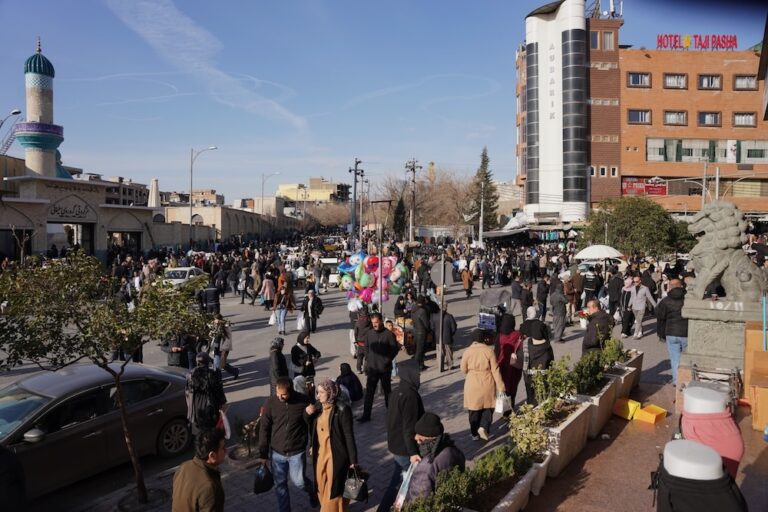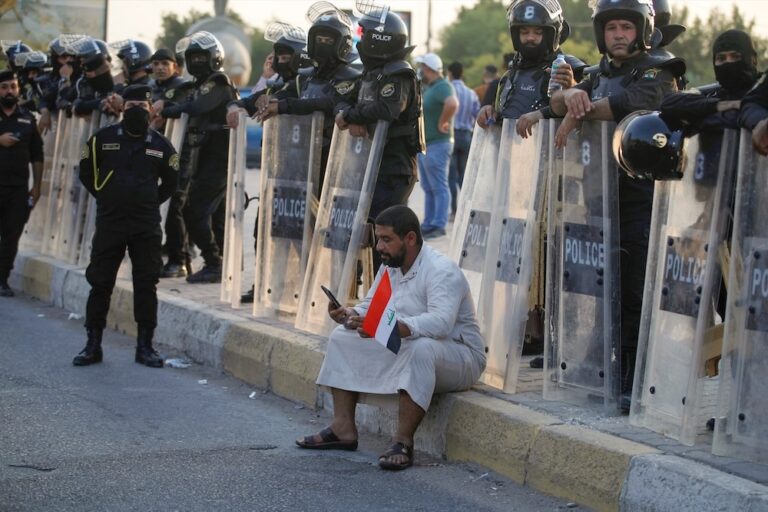The Baghdad office of the Al-Ta'khi newspaper was attacked on 14 July by masked and armed men in police cars. Journalists present were ordered to stop issuing the newspaper and to move out of Baghdad.
The International Federation of Journalists (IFJ) has called on Iraqi authorities to carry out an immediate and thorough investigation into a vicious attack on the Baghdad office of the Al Ta’khi newspaper on Monday evening, 14 July.
IFJ’s affiliates, the Kurdistan Journalists Syndicate (KJS) and the Iraqi Journalists’ Syndicate (IJS), have strongly condemned the attack on the paper which has been running for over 60 years.
The IFJ has fully backed their stance and called on the Iraqi government to step up protection for journalists and media workers amid the escalation of violence and disorder in the country, while repeating its call for journalists to take all necessary safety precautions.
According to reports, the Al Ta’khi office was attacked by masked armed men using three police cars. The paper’s journalists and staff were threatened and ordered to stop issuing the paper and to move out of Baghdad. Administrative and financial files and archives were stolen, along with three cars owned by the paper.
“We join our affiliates in Iraq and the Iraqi Kurdistan region to express our anger and condemnation at this violent attack which was clearly designed to intimidate and strike fear into media workers at the Al Ta’khi newspaper,” said IFJ President Jim Boumelha. “We demand an immediate and detailed investigation into the incident to ensure that those responsible face the full weight of justice for their crimes.”
Focusing on the growing need for increased media protection, Boumelha continued: “The situation for media workers in Baghdad and across Iraq is becoming more and more dangerous every day.
“Authorities in Iraq have a duty to increase protection for the freedom, rights and lives of journalists. If they do not then more attacks will occur and more lives will be lost.”
The IFJ has advised journalists and media workers covering the region that its Front Line Journalism Handbook is available. Specifically designed for journalists working in the Arab World and Middle East, the regionally customised handbook provides invaluable practical safety advice and information.


